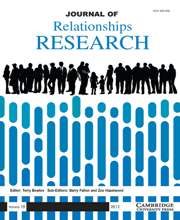Article contents
A Longitudinal Study of Relational Aggression and Victimisation in Early Adolescence: Gender Differences in the Moderating Effects of Social Status
Published online by Cambridge University Press: 02 August 2016
Abstract
Relational aggression is defined as behaviours intended to harm others by damaging their relationships. Drawing from two theoretical perspectives, the social process model and the peer socialisation model, we tested how relational aggression and victimisation could influence each other over time, and examined peer status and gender as moderators of these bidirectional associations. We hypothesised that aggression would lead to increasing victimisation and victimisation to increasing aggression, and that the association from aggression to later victimisation would be weaker for more popular and preferred youth, especially girls. Participants were 328 Australian early adolescents (172 boys, 156 girls) in Grades 5, 6 or 7, who nominated classmates who were aggressive, victimised, popular, and preferred. Results showed support for the role of status and gender in the bidirectional associations between aggression and victimisation. Relational aggression was associated with more T2 relational victimisation only among adolescents who were low in popularity and among girls with low social preference. Victimisation was associated with T2 aggressive behaviour among more popular girls. Relational victimisation was also associated with less T2 aggression among popular boys. Findings highlight the complexities introduced by gender and social status for the unfolding of early adolescent relational aggression and victimisation.
Information
- Type
- Research Article
- Information
- Copyright
- Copyright © The Author(s) 2016
References
- 10
- Cited by

